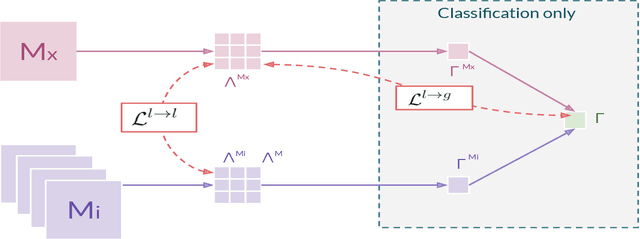Cross-Modal Information Maximization for Medical Imaging: CMIM
Paper and Code
Oct 20, 2020


In hospitals, data are siloed to specific information systems that make the same information available under different modalities such as the different medical imaging exams the patient undergoes (CT scans, MRI, PET, Ultrasound, etc.) and their associated radiology reports. This offers unique opportunities to obtain and use at train-time those multiple views of the same information that might not always be available at test-time. In this paper, we propose an innovative framework that makes the most of available data by learning good representations of a multi-modal input that are resilient to modality dropping at test-time, using recent advances in mutual information maximization. By maximizing cross-modal information at train time, we are able to outperform several state-of-the-art baselines in two different settings, medical image classification, and segmentation. In particular, our method is shown to have a strong impact on the inference-time performance of weaker modalities.
 Add to Chrome
Add to Chrome Add to Firefox
Add to Firefox Add to Edge
Add to Edge